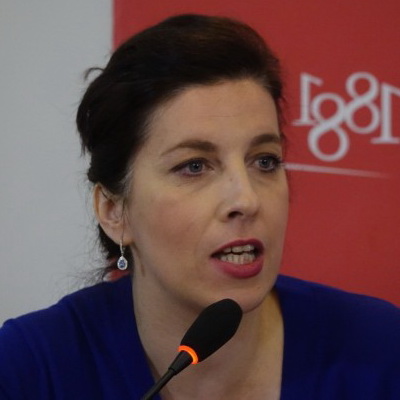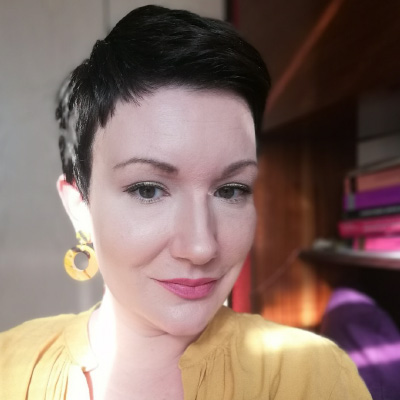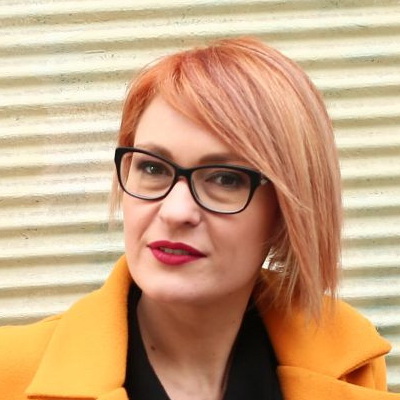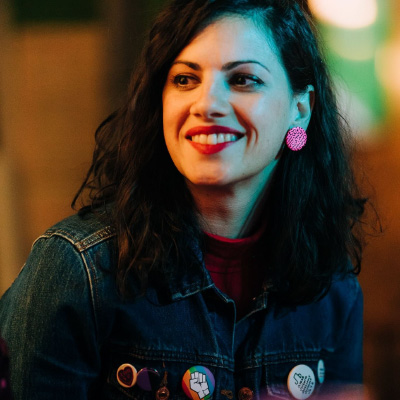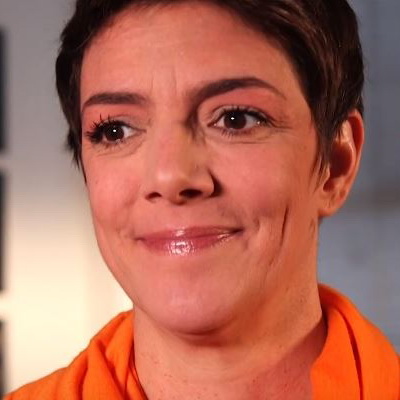The role of the media
Why do you, as a journalist, deal with the problem of violence against women?
How much can the media help, and in what way can they help rectify and advance issues of concern?
Why was it necessary to form the group Journalists against Violence against Women?
LJUBICA GOJGIĆ
Journalist
I see violence against women and the general growth of intolerance and aggression as a major problem of our society, the consequences of which are evident every day. This is why I think the duty of the media is to constantly alert us to the problem of violence and to insist that those who are legally responsible to prevent it and that society recognize and condemn it.
The media can essentially help because of their influence and visibility. The media have also made key contributions to the fight against violence against women, not only through reporting but also by calling for activism. The Safe House project, for example, was part of a major engagement of RTV B92. The trouble with the media is that its tendency towards sensationalism, even in the treatment of cases of violence, often turns the sincere intention to expose and condemn violence into its opposite.
Every gathering on the topic of the fight against violence is one additional voice in that fight, so I think that the idea itself is already a small contribution to an important mission. The formation of the group has achieved at least three very important goals. First, it has enabled many interested journalists to, through informal, open discussions, learn first-hand much more than they had previously known about violence and the fight against violence against women! This will certainly aid them in reporting on this critical topic in a better way. Second, the journalists and editors involved in the group represent an important channel of communication with the media, which enables other participants in the fight against violence easier access to newspapers, radio, and television, and therefore easier contact with the widest audience. And third, in recognizing the importance of the topic, these female journalists have demonstrated a willingness to use their position and influence to promote the idea that discrimination against women, and especially violence, are phenomena for which there is absolutely no excuse or justification.
JOVANA GLIGORIJEVIĆ
Journalist
Because I was taught in my newsroom that journalists are the controllers of the government and the voice of the weak. When I look at the number of victims of violence, the systematic response to violence, yet also the attitude of society and the media towards victims of violence against women, I think that this topic chose me, and not that I chose it. And of course, I am involved in the issue of violence against women because I am a feminist.
The media can accomplish a great deal, yet they do not use their potential enough. They can completely change the language used when talking about this issue and the way violence against women is thought of, can change even the most ignorant or stubborn person in the world in the way they view the problem. The media can educate people and change the world (yes, I really do believe in the latter!). However, with rare exceptions, this does not happen; instead, the media only aggravates things. First, they contact the victims and their families, looking for as many lurid details as possible, just to tug at and exploit the base impulses of the audience. For the same reasons, they publish pictures of beaten women and appalling headlines. Of course, the reason is sensationalism. Human nature is like this: we are more attracted to blood in the media than to someone explaining to us how it came about and how it happens that blood is spilt. It’s much better click bait if you have the victim’s story and you provoke some rudimentary pity in the audience, and who cares if you traumatize that victim by exposing her to the public. This is read more than when we others “bother” with our explaining of the true phenomenon of violence against women. You know how I know I did a good job when I write about this for Vreme (The Times) and when this topic appears on the front page? I know from the fact that this printing of Vreme has sold fewer copies than our average. At the same time, I am well aware of how devastating it is that reduced readership is an indicator of a job well done.
Above all, because not all the editorial offices and editors support pushing this topic to the forefront. All too often, there is just one woman in the newsroom who sees this as important and she feels completely isolated, so she is overjoyed when through her efforts she manages to get a few lines or 30 seconds of space in her media. We needed the group because of these women, so that they know they are not alone, so we can network and be mutual support. Secondly, there are many journalists who want to deal with this topic, aware of how delicate it is, and yet do not have time for thorough education. We have also gathered to exchange knowledge and materials. In addition, there are editors and media managers in the group, so there is hope that we will break through the “glass ceiling” and jointly win over the media space so that the media talks about violence against women in an ethical, healthy, and professional way. And finally, only united like this, we journalists, controllers of the government, can contribute to the improvement of systemic solutions, both legal and practical, when it comes to the treatment of victims of violence.
MARIJA ANTIĆ
Journalist
This is an issue that, due to the prevalence of the problem, deserves, above all, my professional attention. Various attempts to relativize the problem give me even greater motivation to talk about violence against women and all its forms as often as possible in the show I host. In addition to the professional, there is also a completely personal level. I’m a woman.
The media can help a great deal, and I consider it a great success if at least one woman is motivated to consider options for getting out of the circle of violence – of course, as long as journalists adhere to ethics when reporting on violence against women. The relativization I mentioned is something that, in my opinion, is most detrimental.
The formation of the group Journalists Against Violence Against Women was necessary in order to, finally, raise a voice in the profession against unprofessional media coverage of violence against women. Our goal is to highlight errors that can cause serious repercussions, to motivate and educate colleagues to not make such mistakes anymore (I believe that in most cases they are unintentional), and to gradually develop a public discourse in which the victim can never be guilty, and then embolden viewers, listeners, and readers to seek help.
MILICA KRAVIĆ
Journalist
From my first encounter with the issue of gender-based violence, and alongside it feminism, I was interested in this field. Over time, working beside a colleague whose interest in these topics was even greater, I became more informed, more involved, and more interested. There is no doubt that the fight against violence must be the first line of defence of society from various evils. We learn much – about ourselves, society, and opportunities – in examining the phenomenon of violence against women.
I consider the media an important ally in every kind of struggle and teaching in society. This is why I am a journalist, and it is especially because of this purpose that I deal with these social topics. The media must “guard the backs” and “put the wind in the sails” of women’s organizations, institutions, and everyone who cares about dealing with perpetrators of violence. I consider it my duty as a woman, journalist, and member of this society. Journalism is in dire straits, especially in morally impoverished societies. In light of this, I have to take my role of “gatekeeper” even more seriously and be ever more sensitive with information. The consequences of the wrong choices in news selection are incalculable. Every time we hear “what’s even more pathetic is that she just suffers and does not run away,” or “neighbours say he was a good man,” harms both society and the victim, and keeps us in a stationary position in the fight against violence. This is why some journalists are here to change the practice and move society forward.
MAŠA MILEUSNIĆ
Journalist
Because the media have a great responsibility when it comes to reporting violence against women.
The media can help by presenting violence against women in reports as a social problem, and by following in the process of reporting professional, ethical, legal standards, yet above all by honouring our human obligation to respect the victims. The media often worsen the situation by secondarily victimizing the victim through tabloid style reporting – revealing the victim’s identity, speculating on the reasons for the violence, shifting responsibility to the victim, or describing brutal scenes of violence. Such reporting causes catastrophic consequences for the victim: she can be exposed to threats and be put at risk for becoming the perpetrator’s target again, while often she becomes the victim of the very community in which she lives, even, of her own family, which may reject and condemn her, thus further encumbering her recovery process by inflicting new psychological injuries.
Precisely because of all the above: to point out the very great responsibility of the media and by doing so influence the editorial policies of various publishing houses; to provide support and assistance to journalists who report on violence against women to enable them to do their job better and better; to strive to ensure that texts and articles have an informative and educational character and to protect the victim of violence from secondary victimization.
